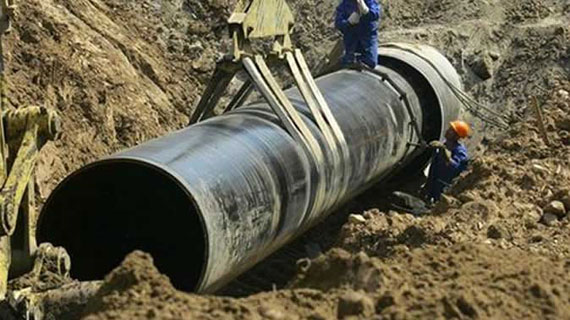
THE government has allocated $140 million for the revival of Bulawayo and construction of the long-awaited Matabeleland Zambezi Water Project (MZWP), seen as the only lasting solution to the region’s perennial water woes.
GAMMA MUDARIKIRI OWN CORRESPONDENT
A perusal of the 2014 national budget presented yesterday by Finance minister Patrick Chinamasa shows that Bulawayo has been allocated $130 million for recapitalisation and other challenges while $10 million has been proposed for the construction of the Gwayi-Shangani Dam, which is part of the MZWP.
Of the $130 million allocated to Bulawayo, $20 million is specifically set aside for water.
The city has been experiencing water shortages resulting in most companies closing shop or relocating to Harare and residents going for days without the precious liquid as council resorted to water rationing.
The MZWP — which has kicked off with experts being recently seen at the site of the Gwayi-Shangani Dam — was first mooted in 1912, but was postponed by successive colonial governments to date.
Part of the $10 million allocated to the project is to address the chronic water shortages in the region, including Bulawayo, and involves the construction of a 367km pipeline from the Zambezi River to Cowdray Park and the upgrading of a treatment plant.
The project to pipe the water from the Zambezi River to Cowdray Park is expected to take eight years to complete.
- Chamisa under fire over US$120K donation
- Mavhunga puts DeMbare into Chibuku quarterfinals
- Pension funds bet on Cabora Bassa oilfields
- Councils defy govt fire tender directive
Keep Reading
The long-awaited Joshua Mqabuko Nkomo International Airport was allocated $1,8 million for the terminal building certificate while the Hwange Thermal Power Station, which requires $115 million for the rehabilitation of the plant, including the overhauling of units 4, 5 and 6 and the auxiliary plant, was allocated only $3,2 million for the replacement of the obsolete plant operating system.
Chinamasa said the construction of two additional units is expected to increase power generation by an additional 600 megawatts (MW) and should be finalised in the next five years.
He said the contract for the project had already been awarded to an undisclosed company while negotiations for the financing of the project are close to finalisation.
Zimbabwe needs about 2 200MW of electricity, but generates just below 1 300MW, while efforts to plug the gap with imports have often been undermined by non-payment for supplies.










